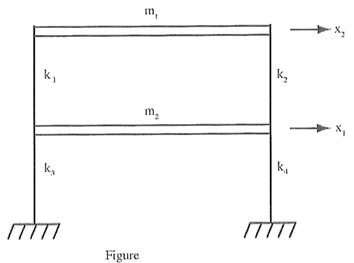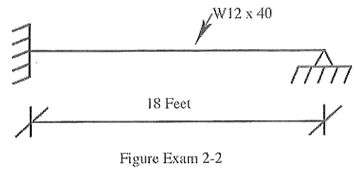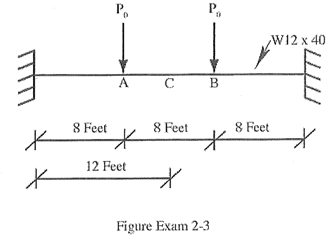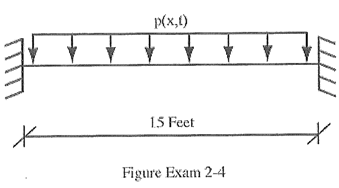1. SHEAR BUILDINGS
For the shear building shown, determine the natural frequencies (RAD/SEC) and the modal matrix. Also, sketch the deflected buildings in their normal modes using the top floor as the reference floor (set its displacement = unity). Finally, demonstrate orthogonality between the modes with example calculation.
• All k factors (stiff nesses) = 15,000 LB/IN
• m1 = 50 LB-SEC2/IN
• m2 = 150 LB-SEC2/IN

2. BEAMS WITH DISTRIBUTED PROPERTIES
Calculate the 4th natural frequency and sketch the tr mode shape (reasonably to scale) for the beam shown. E = 29x103 KSI.

3. BEAMS WITH DISTRIBUTED PROPERTIES - FORCED VIBRATION
Consider the beam shown. Po is a concentrated load applied suddenly (both loads simultaneously) where shown.

A. Discuss or calculate the relative contribution to the total deflection at point A of the 2nd mode of vibration compared to the la mode.
B. What is the ratio of the contribution to the total deflection at point C of the 3rd mode relative to the 1" mode?
4. DYNAMIC ANALYSIS OF BEAMS WITH DISTRIBUTED PROPERTIES
For the beam shown, and considering only the 1st mode, determine the maximum deflection 7.5 FT from the left support.
• El = 30x108 LB-IN2 (constant)
• m'= 1 LB-SEC2/IN per inch of beam span
• Uniform impulse force p(x,t) = (2000)sin(400t) LB acting during a time interval equal to half of the period of the sinusoidal load function (that is, td = Π/400 SEC).
